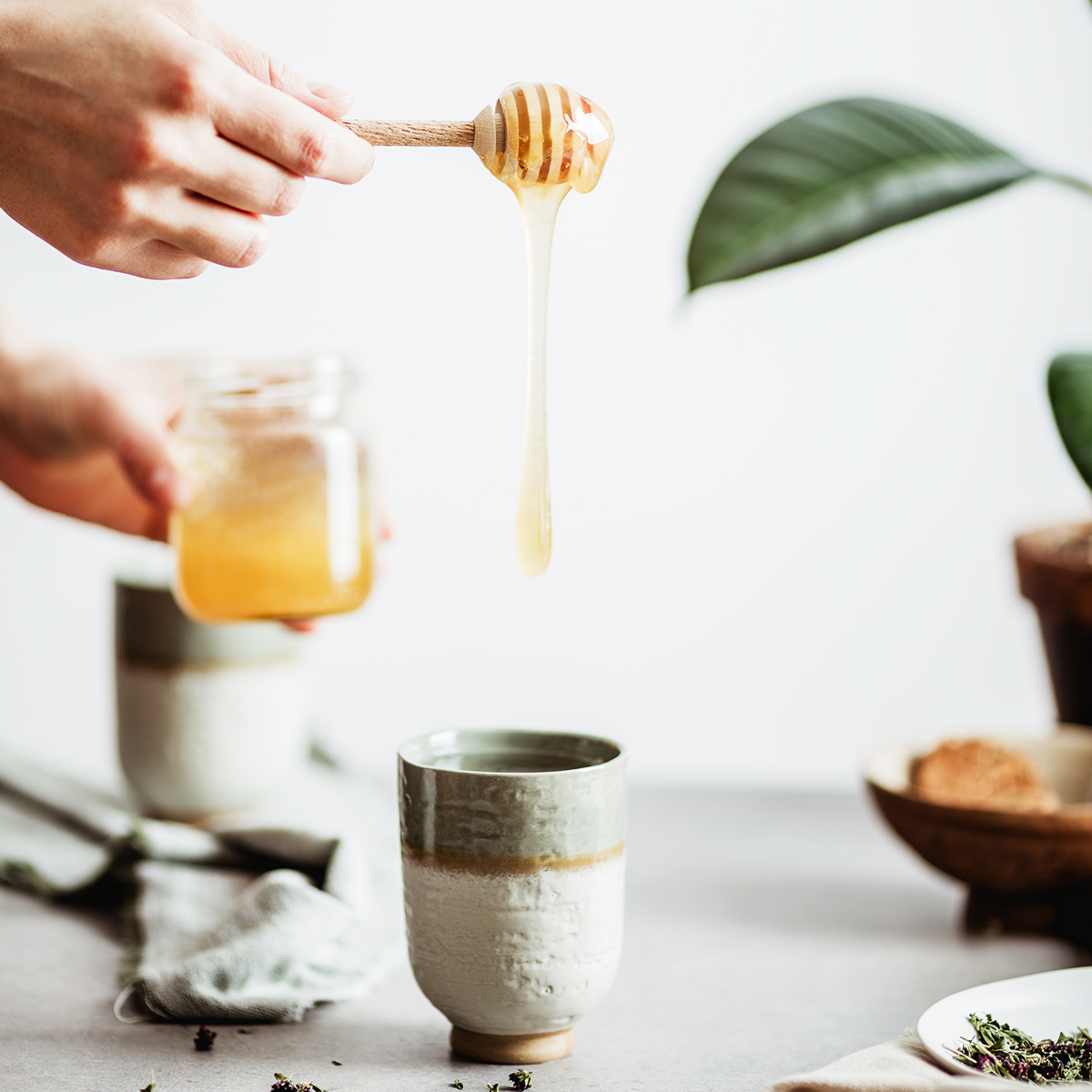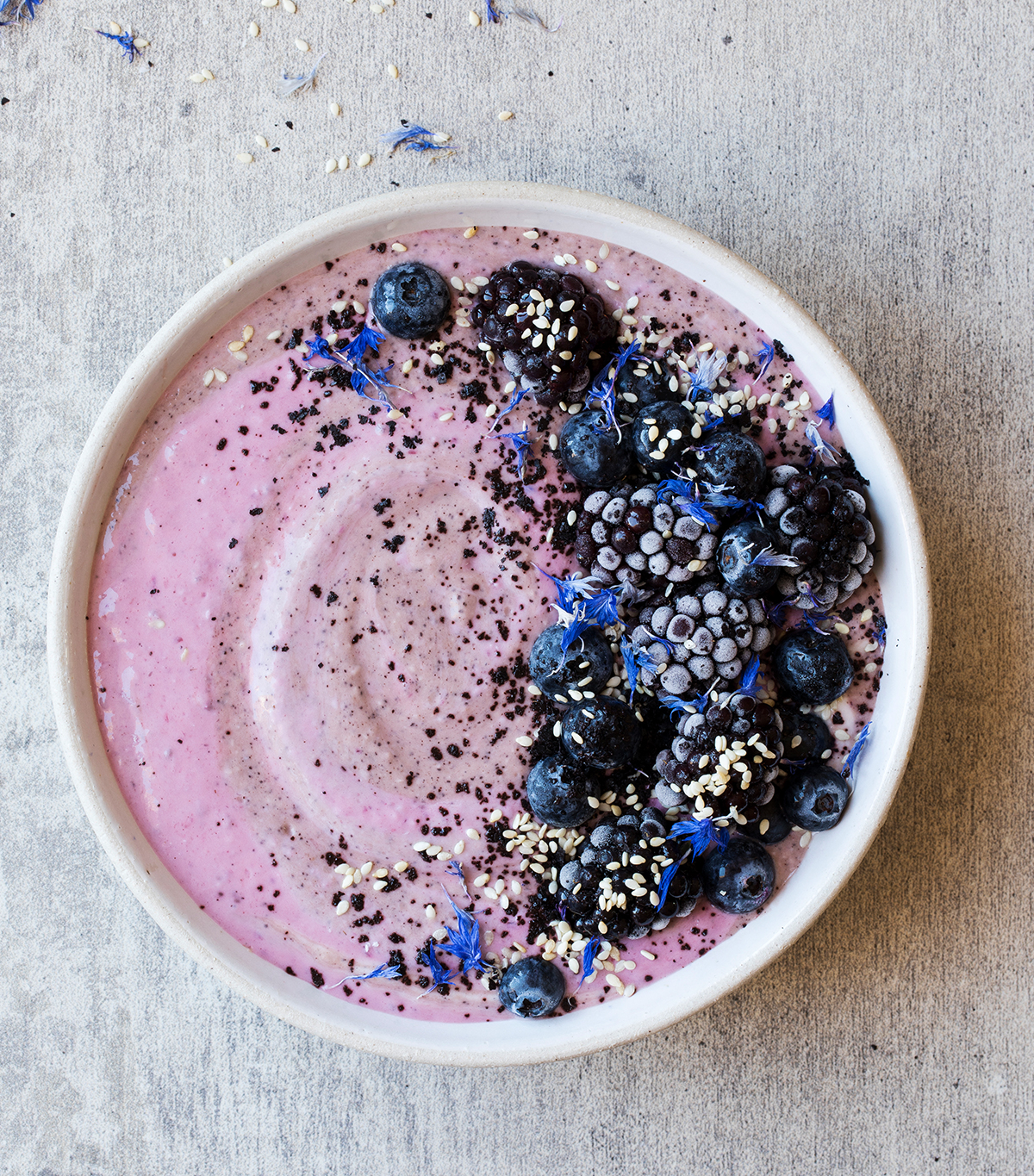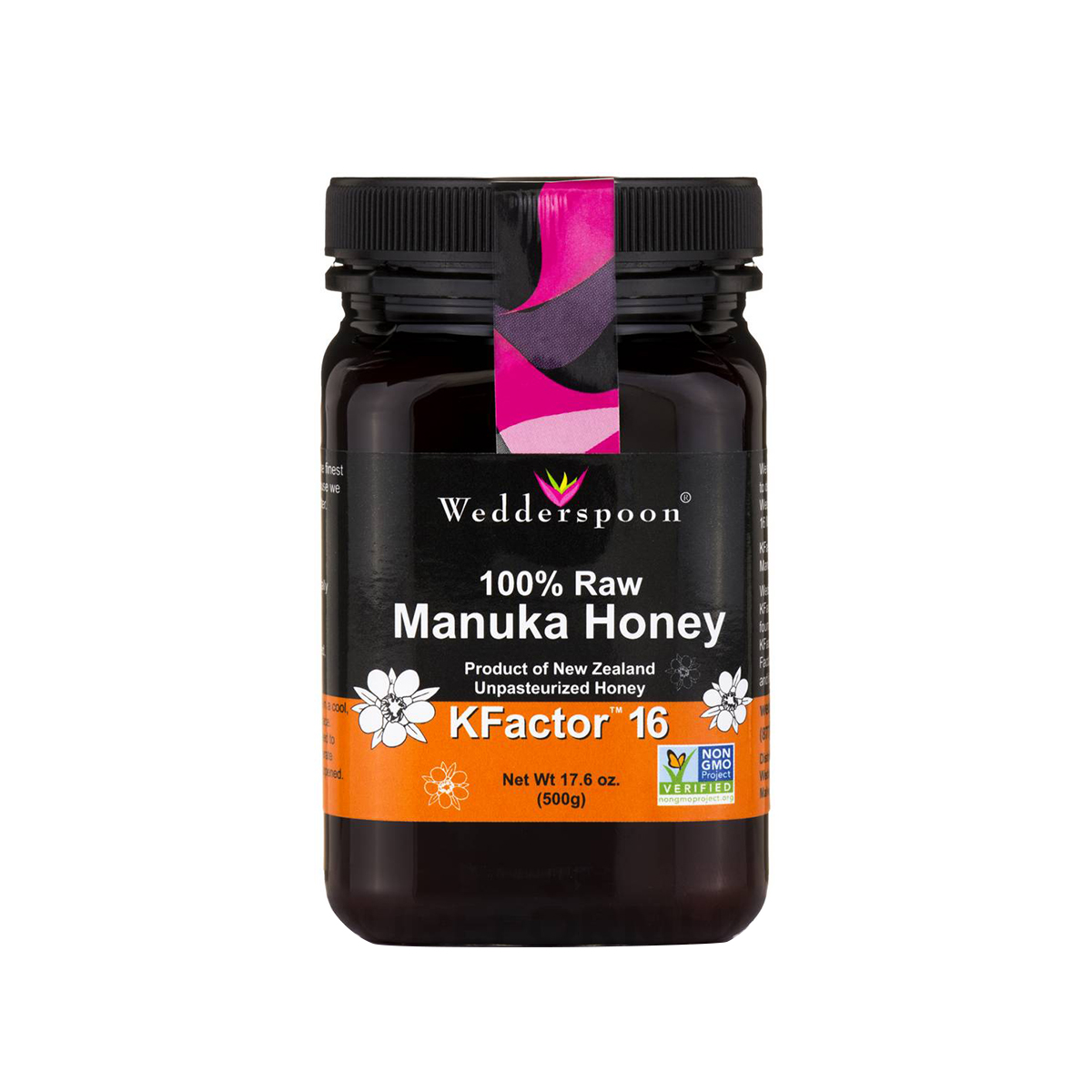Is Honey a Legitimate Way to Care for a Cough? We Asked a Doctor

In addition to its delicious taste, honey has proven itself a liquid treasure trove in terms of its beauty and health benefits. Filled with natural saviors like antioxidants and antifungal and antibacterial properties, it can be a strategic ingredient to incorporate into your daily skincare routine and diet (in moderation, of course). Plus, honey has also been touted as one of the ultimate natural antidotes for a cough. But is there actually any truth to the claim, scientifically speaking?
Since spring is almost upon us (and the changing of the seasons always seems to excite our allergies and simultaneously depress our immune systems—a tragic combination, indeed), we're preparing for the onset of the cold-and-cough season the best way we know how. Thus, we asked Mia Finkelston, MD, a board-certified family physician who treats patients virtually via telehealth app LiveHealth Online, what she thinks of honey for coughs.
Of course, we always recommend seeing your own physician if you have any unusual symptoms or become sick (and according to Mayo Clinic, honey should never be given to infants), but Finkelston did have some helpful insight on the matter. Keep reading to find out whether honey is a useful strategy for treating a cough. Plus, we're spooning up a few other sweet tips and tricks along the way.
Is Honey What the Doctor Ordered?
First things first: It was important to address the elephant in the room to see if using honey for a cough was even something that Finkelston would remotely consider as effective. (Since the antidotal use of honey is more homeopathic, I wasn't sure if it would be seen as a worthwhile option in traditional perspective.) However, according to Finkelston, honey is actually an amazing alternative for soothing a cough:
"I most definitely recommend honey to settle a cough, and there is good medical evidence that honey actually works," she confirms. "In people over 1 year old, honey can have the same effect or, in some cases, more of an effect than over-the-counter remedies. Plus, since I typically never recommend over-the-counter cold medications for children under the age of 6, I suggest honey as an option for anyone over the age of 1 routinely in my practice. Honey is affordable, it tastes good, and it can help soothe a sore throat or a stubborn cough, which is why it's oftentimes one of the main ingredients in cough drops or cold lozenges."
How Does It Work?
So now that we've confirmed that honey is a legitimate way to soothe a cough, I couldn't help wondering how it works exactly. And according to Finkelston, it has more to do with the honey's natural stickiness than anything else. (Although the antibacterial and antioxidant properties definitely don't hurt, either.)
"When it comes to caring for a cough, it is the stickiness and viscosity of the honey that really makes it tick," Finkelston tells us. "Honey is a demulcent which has been known to soothe irritated mucous membranes and this, in turn, can help remove the irritant that stimulates the cough reflex."
The Type of Honey Is Important
Raw, organic, and manuka forms of honey are much different than more processed varieties, which have often been heated and therefore lose a lot of the original nutrition and benefits. (In other words, consuming these types of honey can be a wash if you're in the market for health benefits over taste.)
"Dark honey (like unfiltered, raw, and manuka varieties) have more antioxidants than those that are light in color, and therefore may have added benefits," Finkleston explains. However, it really comes down to what is available and what your price range is. You can still buy a quality honey that's not necessarily of the manuka variety, which can run $20 and up. Again, looking for keywords like "raw," "local," "unfiltered," and/or "organic" will probably be your best bet for getting the healthiest bang for your buck. For a guide to buying manuka, check out Byrdie UK's breakdown here. (It's actually kind of complicated!)
"Local honey varieties are usually fresher and support the local environment, so I would look for those first," Finkelston says. Plus, as an added safety precaution, make sure the lid is sealed and the container is not cracked before using just as you would with an OTC remedy.
How to Use It

According to Finkelston, there really isn't a right or wrong way to take honey for a cough. So essentially, it's foolproof. (However, honey is still a form of sugar, so it's advisable to keep portions moderate to avoid any significant spikes in blood sugar.)
"To be honest, I don't believe there is any special way to take honey for a cough or a particular method that's most effective. That being said, taking honey straight from the jar might be the strongest, and therefore most potent, method for soothing your throat and cough. Plus, it's important to remember to rinse your mouth out after eating honey to prevent tooth decay, especially if taken right before bed," Finkelston says.
Not into licking your honey off of a spoon? Finkelston also recommends the combination of black tea and honey—her "tried-and-true" recipe. Or if you're a smoothie person and like the way the cooler temperature and texture feels against an irritated throat, she also recommends a small spoonful of honey as a strategic addition to your go-to recipe.
When It's Time to See a Doctor
According to Finkelston, coughing generally isn't serious, and it can actually be a good sign if you're in the process of recovering from an illness. However, there is always a time and place to see your physician if your cough isn't getting better or you're having other concerning symptoms. Remember, honey is helpful as a treatment option, but it won't cure or fix the underlying issue.
"Coughing isn't all bad, as it helps clear mucus from your airway. So if you or your child are otherwise healthy, there's usually no reason to suppress a cough other than it can be annoying. That being said, if a cough lingers for over three weeks, is associated with persistent fevers, or is making you sore or giving you a headache, it's time to see your physician," Finkelston tells us.
Plus, it's also worth noting that if you have asthma or reactive airways disease, allergies, or are a regular tobacco user, you may need to get checked out sooner. Honey can help for temporary relief from a cough, but always talk to your physician about warning signs and unusual symptoms as everyone is different. So there you have it! Honey just might be the sweetest way to care for that stubborn cough.
Disclaimer
This article is provided for informational purposes only and is not intended to be used in the place of advice of your physician or other medical professionals. You should always consult with your doctor or healthcare provider first with any health-related questions.
Erin has been writing a mix of beauty and wellness content for Who What Wear for over five years. Prior to that, she spent two and half years writing for Byrdie. She now calls Santa Monica home but grew up in Minnetonka, Minnesota, and studied writing, rhetoric, and communication at University of Wisconsin, La Crosse. She studied abroad in Galway, Ireland, and spent a summer in L.A. interning with the Byrdie and Who What Wear family. After graduating from UW, she spent one year in San Francisco, where she worked as a writer for Pottery Barn Kids and PBteen before moving down to L.A. to begin her career as a beauty editor.



